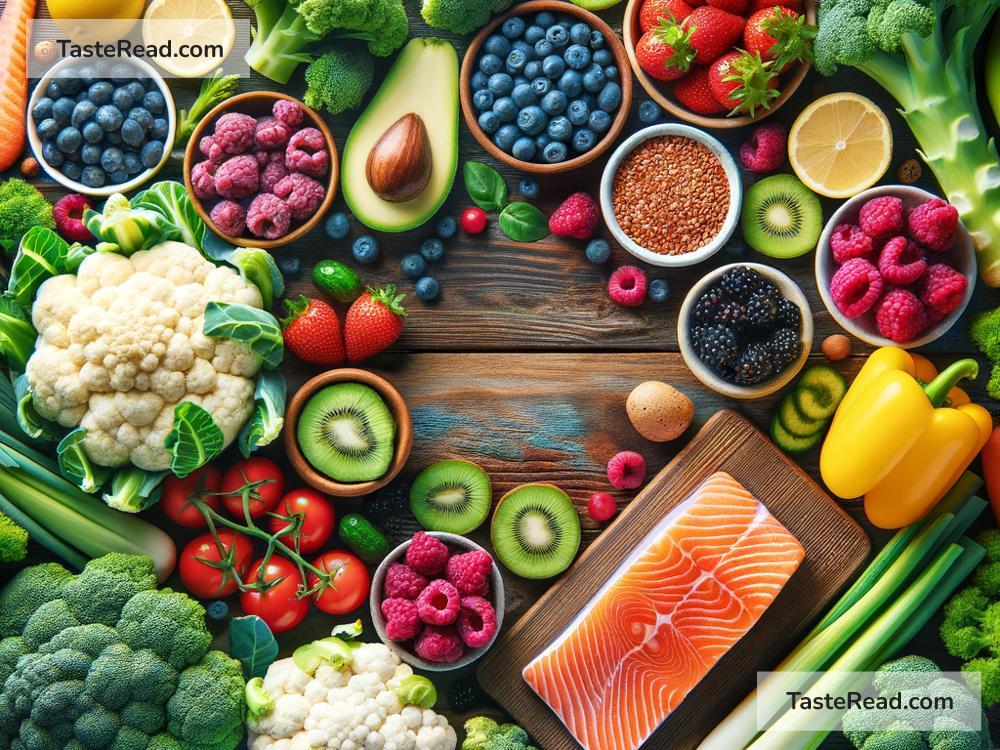Foods That Reduce the Risk of Hyperthyroidism
Our thyroid gland is a small, butterfly-shaped organ in the neck that plays a big role in our overall health. It produces hormones that regulate many critical processes in our body, such as metabolism, heart rate, energy levels, and more. Hyperthyroidism is a condition where this gland becomes overactive and produces too many thyroid hormones. Symptoms of hyperthyroidism can include weight loss, rapid heartbeat, sweating, irritability, and difficulty sleeping, among others.
While managing hyperthyroidism often requires professional medical advice and treatment, our diet can also play an important role in preventing or managing this condition. Certain foods may help lower the risk of hyperthyroidism or ease its symptoms. In this article, let’s look at some of the foods that are known to support thyroid health and reduce the risk of an overactive thyroid.
1. Cruciferous Vegetables
Cruciferous vegetables like broccoli, cauliflower, cabbage, kale, and Brussels sprouts are great for managing thyroid health. They contain substances known as goitrogens, which can interfere with thyroid hormone production. If you’re looking to reduce the risk of hyperthyroidism, eating these vegetables can slow down the gland’s activity and help regulate hormone levels. Cooking these vegetables may reduce their goitrogenic effect, but they’re still beneficial when included in a balanced diet.
2. Selenium-Rich Foods
Selenium is an essential mineral that plays a key role in thyroid hormone metabolism. It may help protect the thyroid gland and prevent overactivity. Including foods rich in selenium in your diet can be helpful in reducing hyperthyroidism risk. Good sources of selenium include:
- Brazil nuts
- Sunflower seeds
- Eggs
- Tuna
- Salmon
- Mushrooms
Just a few Brazil nuts a day can provide sufficient selenium for your body, but don’t overdo it, as excess selenium can lead to other health issues.
3. High-Iodine Foods (Only in Low Amounts)
Iodine is a critical nutrient for thyroid function. However, consuming too much iodine can sometimes trigger or worsen hyperthyroidism, especially in individuals prone to thyroid issues. Moderate consumption of iodine-rich foods can help maintain thyroid balance, but excessive intake (such as through supplements or very high-iodine foods) should be avoided. Foods with iodine include:
- Fish and seafood
- Seaweed (like nori, kelp, and wakame)
- Dairy products
If you suspect you’re at risk for hyperthyroidism, consult a doctor before making big changes to your iodine intake, as high levels can sometimes aggravate thyroid problems.
4. Whole Grains
Whole grains like oats, brown rice, quinoa, and whole wheat are excellent for overall health, including thyroid health. These grains are rich in fiber, which can help fight one problematic symptom of hyperthyroidism—an overactive digestive system. Hyperthyroidism can speed up metabolism, leading to frequent bowel movements and digestive discomfort. Fiber slows things down and promotes better gut health, balancing an overactive thyroid’s effects on digestion.
5. Foods Rich in Vitamin D
Vitamin D is critical for immune system health and may help manage thyroid disorders. A deficiency in Vitamin D has been linked to thyroid dysfunction, including hyperthyroidism. Foods rich in Vitamin D can include:
- Fatty fish like salmon, mackerel, and sardines
- Egg yolks
- Fortified dairy and plant-based milks
- Fortified cereals
Additionally, spending time outdoors in sunlight is a natural way to boost your Vitamin D levels. Try soaking up a little sun every day to support your thyroid health as well as your overall well-being.
6. Anti-inflammatory Foods
Hyperthyroidism is often linked to autoimmune conditions, such as Graves’ disease, where the immune system mistakenly attacks the thyroid. Eating anti-inflammatory foods can help reduce inflammation in the body and support immune system balance. Some great anti-inflammatory food options include:
- Berries (like blueberries, strawberries, and raspberries)
- Turmeric (try adding it to soups or tea)
- Leafy greens like spinach and Swiss chard
- Nuts and seeds
- Healthy fats like olive oil, avocado, and fatty fish
These foods can calm the immune system and promote thyroid health long-term.
7. Dairy Alternatives
For some individuals, hyperthyroidism can be worsened by consuming dairy products, as lactose intolerance or milk proteins may trigger inflammation or hormone imbalances. Opting for dairy alternatives like almond milk, soy milk, or oat milk may be a better choice for those sensitive to dairy. Adding non-dairy yogurts or cheeses to your diet can also provide nutrients without risking thyroid imbalance.
8. Herbal Teas
Certain herbal teas have calming effects on the thyroid and may help manage hyperthyroidism symptoms. Chamomile tea, green tea, lemon balm tea, and valerian tea are known for their soothing properties. Lemon balm, in particular, is thought to help regulate thyroid activity and calm an overactive gland.
Conclusion
Hyperthyroidism can be a challenging condition to manage, but adjusting your diet can be an effective way to reduce your risk and support overall thyroid health. Foods like cruciferous vegetables, selenium-rich nuts, whole grains, anti-inflammatory berries, and herbal teas can calm an overactive thyroid and promote a balanced system. However, always remember that diet is just one piece of the puzzle. If you suspect thyroid issues, consult a doctor or nutritionist to create a personalized plan that works for your unique needs.
Eating mindfully, staying active, and keeping stress levels in check are all essential for supporting thyroid health. With small, consistent changes in your diet, you can take charge of your health and reduce the risk of hyperthyroidism naturally.


